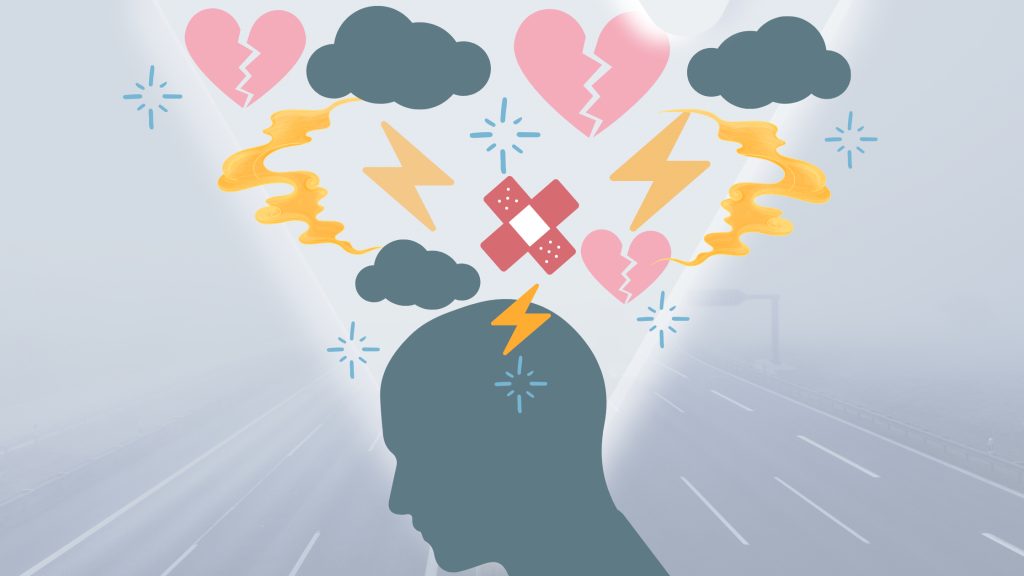The Hidden Architect: Trauma in the Soul of People and History

“Trauma in a person decontextualized over time can look like personality. Trauma in a family decontextualized over time can look like family traits. Trauma in a people decontextualized over time can look like culture.” — Resmaa Menakem (from My Grandmother’s Hands)
I don’t think we acknowledge enough the real place of trauma both in our personal lives and in the history of peoples and societies. This thought is something that I had posted on Facebook recently, and it is something that I have been meditating on for some time . It shapes us more than we dare to admit.
We speak often of hope, resilience, and healing — and those are good things, necessary things. But I wonder if we leap too quickly to them. Is it possible that, in our desire to move on, we leave the wound festering just below the surface, unacknowledged, unseen, unheard. Unacknowledged, trauma does not fade. It lingers. It haunts. It becomes the silent architect of our inner world, our beliefs, our politics, our faith.
“Be kind, for everyone you meet is fighting a great battle.” — Philo of Alexandria
On the personal level, many of us carry unspoken grief: childhood wounds, betrayals, moments of violation or abandonment that shaped our souls long before we had words for them. Some of us try to spiritualize these too quickly — to alchemize pain into insight without honoring the rawness of the hurt itself. But trauma does not obey the timelines of spiritual narratives. It lives in the body. It alters our memory. It fragments our identity.
And what is true for the individual is even more pronounced at the level of peoples and civilizations.
History is not, as we often pretend, a sequence of enlightened steps leading us upward. It is marked by ruptures, cataclysms, genocides, expulsions, enslavements, wars, betrayals, and displacements. These traumas are not footnotes — they are the soil in which culture takes root. The Jewish soul is shaped by exile, pogroms, and the Shoah. The African-American experience bears the enduring echo of the Middle Passage and slavery. The Indigenous soul remembers dispossession. Palestinian memory bears Nakba and the current horrors in Gaza. Armenian identity holds the shadow of 1915. The trauma of Partition still bleeds in South Asia. And these are only a few.
And yet, we often speak of these as “tragedies” or “difficult histories” as if they were obstacles on the way to progress, rather than the very crucible in which modern identities were formed. We want to forget the unbearable. But forgetting is not healing. Forgetting is a form of violence.
“The ordinary response to atrocities is to banish them from consciousness. Certain violations of the social compact are too terrible to utter aloud: this is the meaning of the word unspeakable.” — Judith Herman (from Trauma and Recovery)
I believe deeply that our spiritual and philosophical lives must make room for trauma — not merely as something to overcome, but something to sit with, to bear witness to, to ritualize. In many religious traditions, trauma is at the center: the Cross, the Ashura, the destruction of the Temple, the Battle of Karbala, the exile of the Buddha from his palace, the death of Krishna. Sacred memory often begins with rupture.
But we, in modern life, have lost the art of mourning. We have liturgies for celebration, but few for grief. We have productivity rituals, but few communal laments. We prize healing but shy away from naming the wound.
And so trauma becomes a ghost: ever-present, rarely seen, never quite named. It forms the very core of our being and of our understanding the world — yet we would rather not see it as such. In an attempt to shy away from pain and vulnerability, we shy away from seeing trauma for the shaping force that it is — both in our personal lives and in our lives, our faiths, our mythologies as a collective peoples.
We must begin, I think, by naming it. Not in the language of pathology, but in the language of witness. We must speak the unspeakable. We must acknowledge the extent that trauma has shaped our lives — in order that a real part of ourselves is given its due, and so that we might more fully live.
There is no light, said the mystics, except that which issues from darkness.
Let us not be afraid to go there.
Because the wound is not just a scar to be hidden. Sometimes, as says Rumi, the wound is where the light gets in.
This is just a preliminary reflection. I am not an expert in this matters — though in my time as a priest, I have studied up on and reflected a great deal on ideas such as ‘ancestral sin’, family trauma, war, and PTSD in my pastoral care of people. I feel this is something that I am revisiting again in our very traumatized world and society — especially in contemplating the situation between Israel and Palestine. I am interested in hearing your thoughts in the comments. Inshallah, I shall write more on this topic.
If you like this content, please consider a small donation via PayPal or Venmo. I am currently studying Islam and the Arabic language full-time, and any donation — however small! — will greatly help me to continue my studies, my work, and my sustenance. Please feel free to reach me at saidheagy@gmail.com.
Also, feel free to visit me on Medium.
Thank you, and may God reward you! Glory to God for all things!